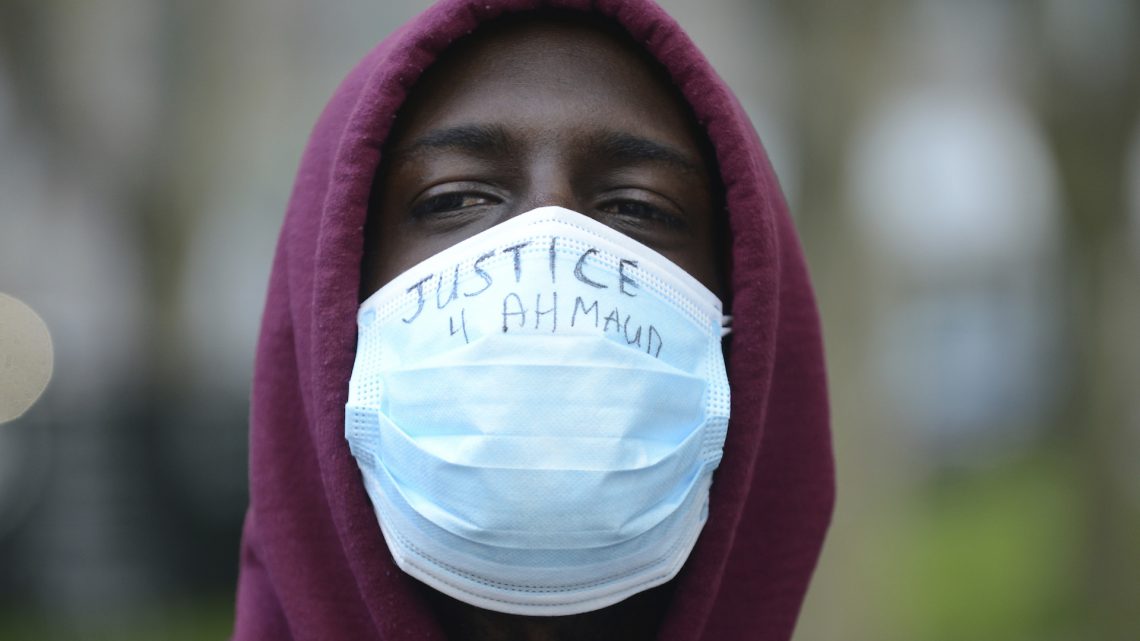
Ahmaud Arbery’s Death Is Already Inspiring a State to Change Its Citizen’s Arrest Law
May 14, 2020Want the best of VICE News straight to your inbox? Sign up here.
The fatal shooting of Ahmaud Arbery in Georgia earlier this year has the neighboring state of South Carolina revisiting its own laws regarding “citizen arrests,” which protected the two white men involved in the death of the 25-year-old black man — at least initially.
“Citizen’s arrest” laws, which almost every state has in some capacity, generally allow average citizens to take legal action, like detaining someone suspected of a crime, in the absence of law enforcement. One prosecutor assigned to Arbery’s case used the law as rationale in declining to file charges against the father and son who shot him; they’d told police they followed Arbery, who was jogging through his neighborhood, because they thought he was a burglary suspect.
Both men, however, were later arrested and charged with murder.
In the response to Arbery’s death, a group of South Carolina Democrats, led by state Rep. Justin Bamberg, introduced two new bills Tuesday that could forever alter citizens’ ability to carry out an arrest in the state. The first of the two bills, H-5487, would abolish the practice altogether. The second bill, H-5492, which will act as a more appealing bi-partisan option, would keep the law on the state’s books, but only in cases of home invasions.
“There’s a group chat that our legislators have,” South Carolina Rep. Marvin Pendarvis, who co-sponsored the bill alongside 11 other elected officials, told VICE News. “We decided to take a look at what South Carolina has on the books concerning citizens’ arrest.”
“Lo and behold, we have a law that not only would allow what happened in Georgia but actually goes a step further,” he added. “We knew that this was problematic and something that we needed to change.”
South Carolina’s current citizen’s arrest law allows any person to arrest anyone who they’ve seen commit a felony or someone who raised the suspicion he or she is about to steal or to commit a felony. While similar to Georgia’s law, South Carolina’s leaves room for the person carrying out the arrest to take the life of the person suspected of committing the crime if deemed necessary.
In Georgia, the person conducting a citizen’s arrest must have “reasonable and probable grounds of suspicion” that the suspected criminal had committed a crime and "use no more force than is reasonable," but the statute doesn’t specifically allow for the suspect’s execution.
South Carolina legislators are not meeting regularly due to concerns over the coronavirus, but the bill’s sponsors remain optimistic. They hope that when the Assembly reconvenes in mid-September, they’ll have a chance to advocate for the change in the law before the end of the legislative year, after which point the bill would have to be reintroduced
“The reality is this is a conversation that is long overdue and we’re hoping that this is something that gets bipartisan support,” Pendarvis said. “We know that many of our colleagues on both sides of the aisle were outraged by what happened in Georgia, and we hope that we can use that frustration in a way that passes meaningful legislation.”
South Carolina isn’t the only state where politicians are reconsidering old laws after the tragic death of Ahmaud Arbery. In Georgia, state representatives are calling for the passage of a hate crime law. Georgia is one of only four states that currently have no such law in place.
Cover: A large group of protesters, bound together with yellow caution tape, marched on New York's Police Headquarters decrying police brutality against African-Americans following the killing of Ahmaud Arbery, 11 May 2020, in New York. (Photo by B.A. Van Sise/NurPhoto via AP)


